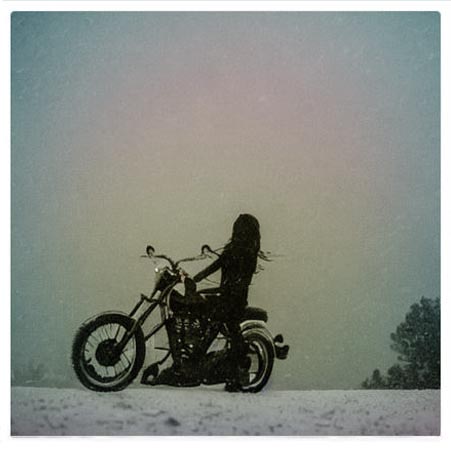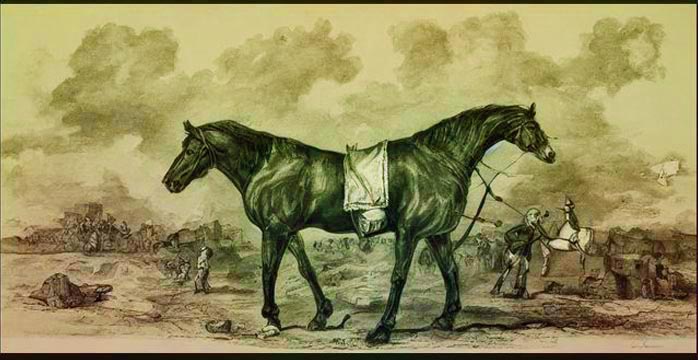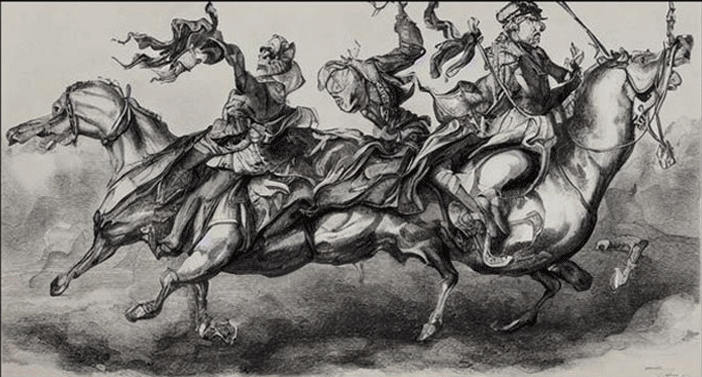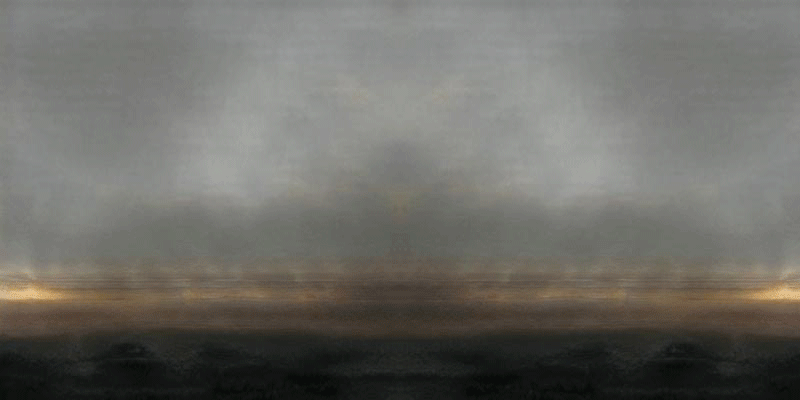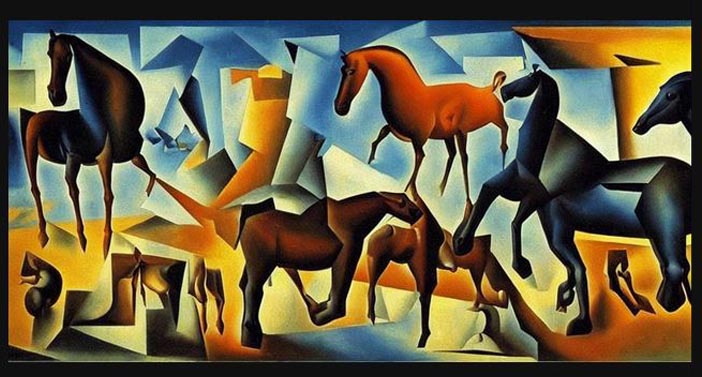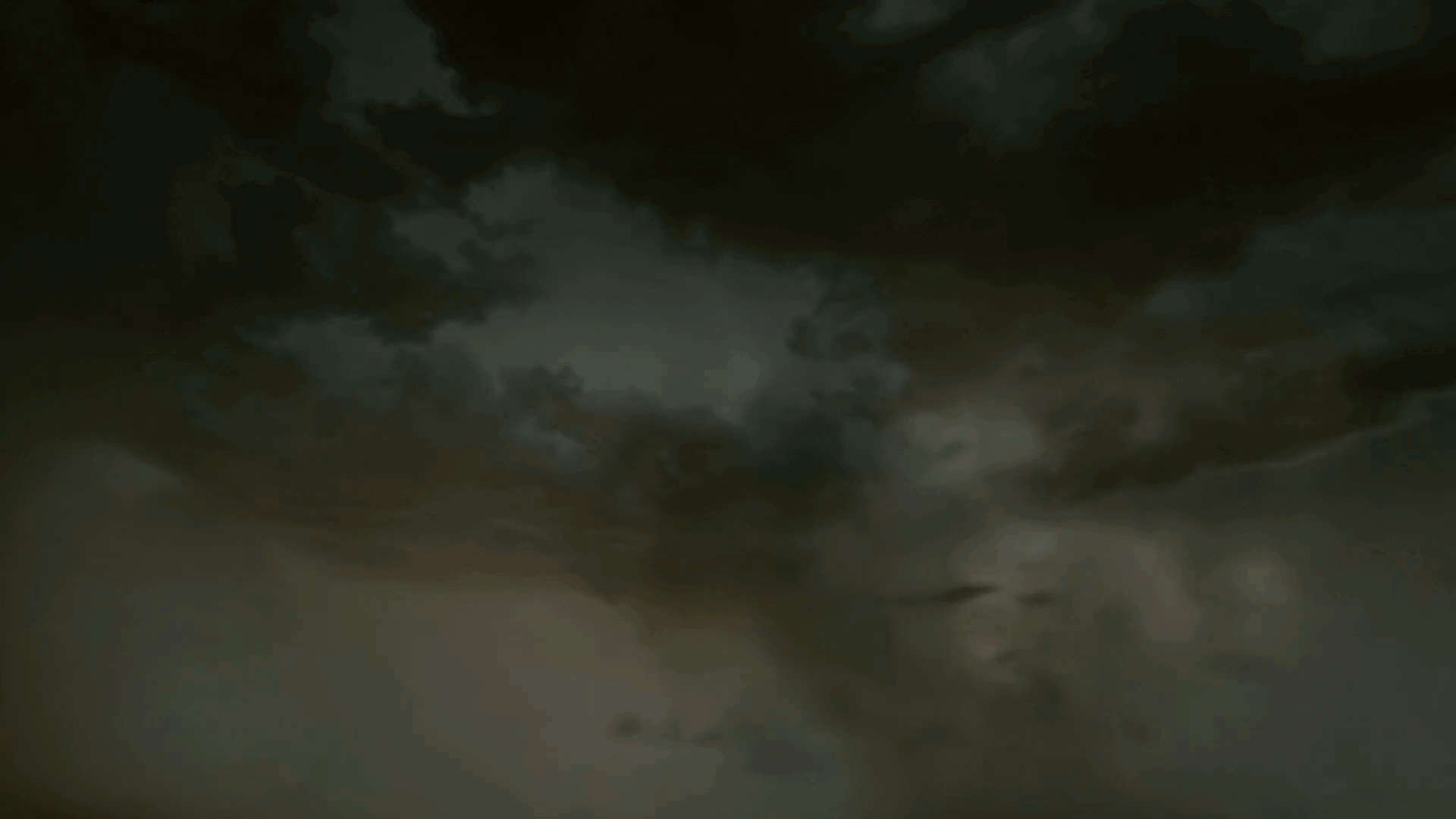 Lightning
and low grey clouds. Brave riders.
With courage. What a romantic and hopeful
image the Doors conveyed with their
musical work in the 70s. Even though the
song Riders on the Storm begins with a
rumbling thunderstorm, it is soon
followed by a cheerful piano that
blithely makes its way through the sound
of pouring rain and thunder, and then,
after a few more chords, completely
imitates the natural phenomenon of
"thunderstorms". With this unconcerned
lightness of the piano, it then succeeds
in completely displacing the storm...
Lightning
and low grey clouds. Brave riders.
With courage. What a romantic and hopeful
image the Doors conveyed with their
musical work in the 70s. Even though the
song Riders on the Storm begins with a
rumbling thunderstorm, it is soon
followed by a cheerful piano that
blithely makes its way through the sound
of pouring rain and thunder, and then,
after a few more chords, completely
imitates the natural phenomenon of
"thunderstorms". With this unconcerned
lightness of the piano, it then succeeds
in completely displacing the storm...The "riders in the storm" was a metaphor in the 70s for people who cannot or do not want to fit into their respective society. That is also the interpretation today. It was a matter of standing up to the storm. That was the task of the riders.
But the viewer's/listener's view of this apocalyptic scene was a view from outside, from far away, or at least far enough away. One could take in the scene with a bit of creepiness and compassion from the safety of the sofa. With a joint, of course. The future was dark, but somehow all would go on. For the promise of prosperity and progress seemed guaranteed...
Before you continue, please listen to this:
A brief look back at the 70s is worthwhile - please click here
The view on the future has
changed
This promise of
prosperity - that was and still is part
of the German identity. The promise of
prosperity was the foundation of German
post-war democracy.
But at some
point, globally, it was only about
economic prosperity - or rather, it
continues to be about the promise of at
least a prospect of prosperity.
In
2023, however, the question arises: Is
and was the motive of "prosperity for
all" only an illusion? And can the
future really be about securing the
prosperity that exists today?
Loss of
prosperity - this is a fear that
concerns many people, not only in
Germany.
Read more about the shift from the distant riders to riding the storm here: ( The individual )
Breaking news: A long-lost classic makes an appearance:
From image to spectacle
to fetish - read more
here
Today we are no longer watching the
storm.
We are riding it.
We are
the storm. We cause the storm...
Many have recognised this and have already changed their behaviour or attitude. Just as many ignore everything, hope that the cup will pass them by, bury their heads in the sand.
A few turn on full throttle. Extra. Because there is only one life. Theirs. And then there are a few who turn every crisis into a success.
This is post-modernity. It is determined by plurality.
They say, our Western plurality refers to the multiplicity of life realities or better: to the right of different life designs as a basic constitution of society.
And it is precisely this right to have different ideas about how one's life should be that evidently cannot be enforced.
At the very least, plurality enables different forms of knowledge and theoretical probabilities of various patterns of action.
This is quite contrary to the great metanarratives of modernity, which aimed at a unity of knowledge and a unified truth. But how exactly is this today? Can these different ways of life be realised at all? Does it not remain just another new promise?
Is there really diversity of opinion and a culture of debate today?
Riding the Storm means being alert. But
it also means necessarily disobedience,
breaking the rules, refusal and this
means
resistance .
So our view of the
future has changed - shaped by our
concerns about an all in all
incomprehensible world. Yet we lack a
shared assessment of the situation. For
the more unjust and chaotic the world
becomes, the clearer it becomes how
polarised we are. The struggle for
resources and power is rooted in our own
individual greed. A trap we have set for
ourselves.
From the distant rider to wearing the dashcam please click here
Every current situation triggers new consequences. Unpredictable and uncontrollable. That is the only victory of globalisation.
But people still think that they are helpless on their own and therefore without power. And this hiding behind one's own actions is the real tragedy. Because the small, daily, individual decisions and actions are an untapped potential of
resistance .To repeat:
the struggle for resources and power in
the big world has its roots in our own
individual greed. The cause of our storm
is the ineradicable idea that man can
always control his own discontent with
his intelligence and creativity.
The storm is thus
also a symbol of the question and
definition of happiness and contentment.
The more unjust and chaotic the world
becomes, the clearer it becomes how
polarised we are. We lack a common
assessment of the situation.
